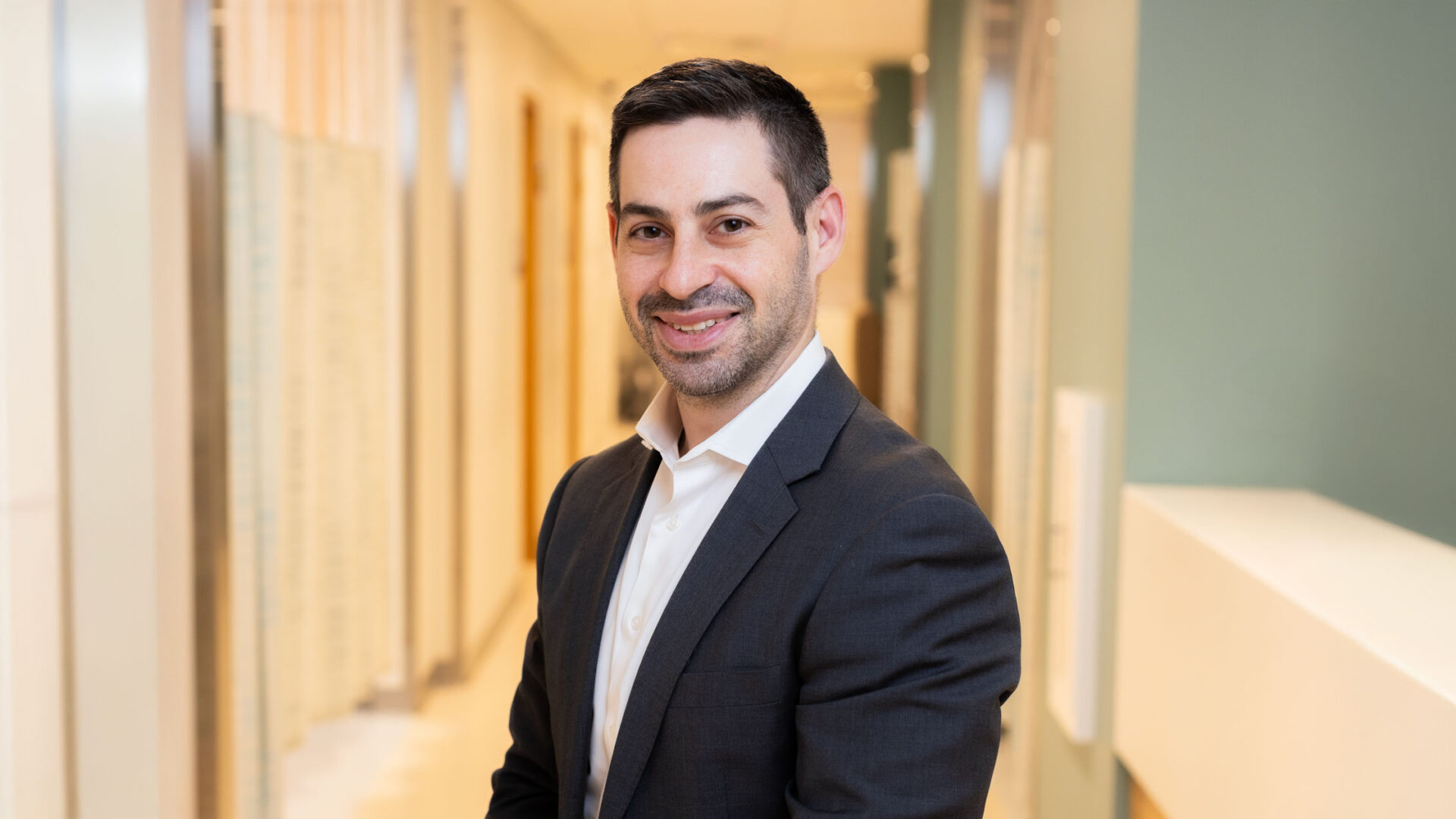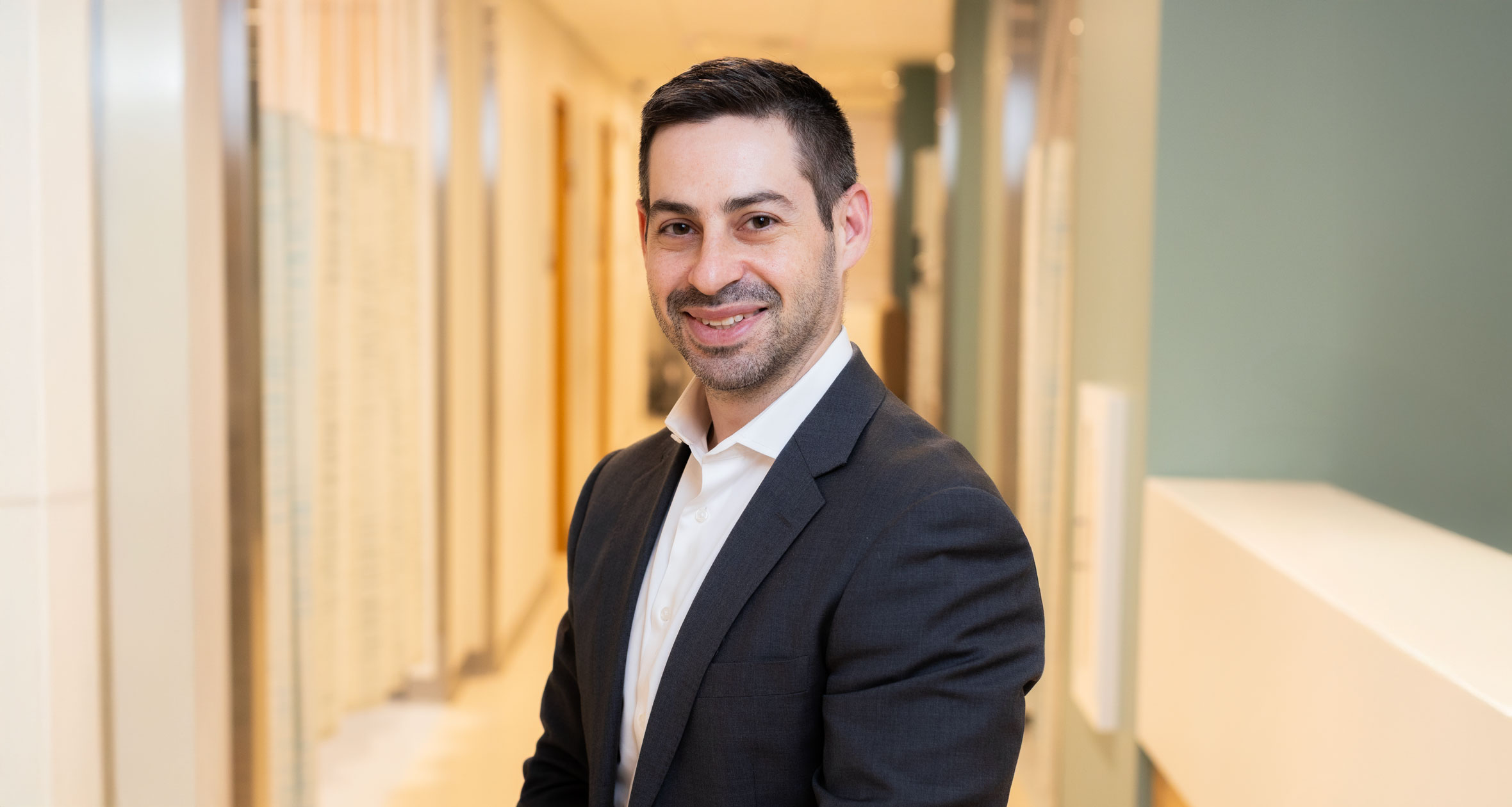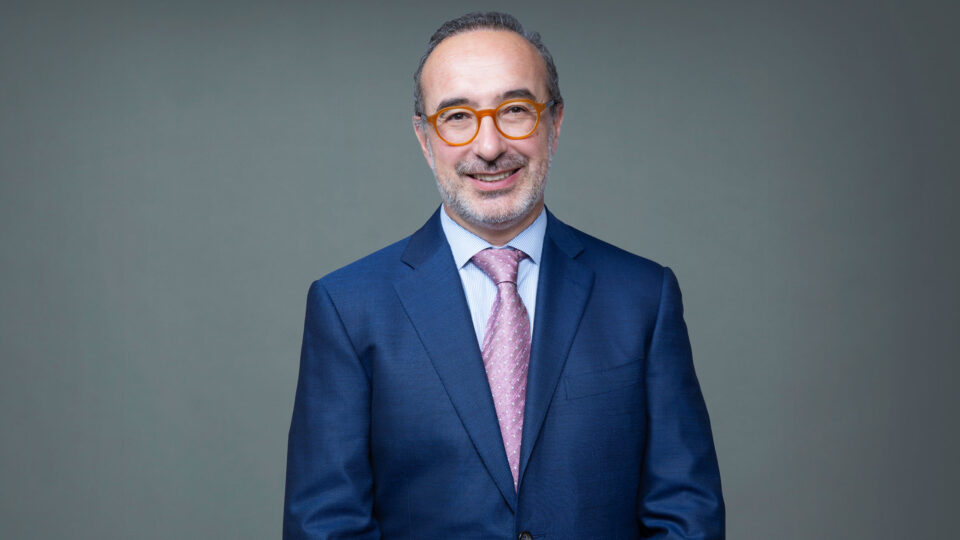Michael Dolinger, MD, MBA, has joined Hassenfeld Children’s Hospital at NYU Langone as director of the Pediatric Inflammatory Bowel Disease Program. Dr. Dolinger is nationally recognized for his pioneering use of intestinal ultrasound (IUS) as a tool for assessing disease activity in inflammatory bowel disease (IBD). As a leading advocate for the technique, he cofounded the Intestinal Ultrasound Group of the United States and Canada (iUSCAN) to train and support clinicians across North America.
Here, he shares what inspired him to rethink monitoring strategies in pediatric IBD and underscores the meaningful impact of IUS in improving care for children.
Physician Focus: Tell us about IUS. What benefits does it offer pediatric patients over other monitoring methods?
Dr. Dolinger: IUS is a traditional transabdominal ultrasound, commonly used during pregnancy to monitor fetal development. We slide a probe over the patient’s belly systematically to detect signs of inflammation in the bowel wall. Because the test is safe and convenient, we can perform it as often as needed.
“IUS requires no fasting, vein puncture, or contrast agent. I often have results within 10 minutes.”
Michael Dolinger, MD, MBA
For young children, IUS is particularly valuable. It avoids the oral and intravenous contrast or sedation they often require for magnetic resonance enterography as well as radiation exposure from repeated CT scans. Moreover, IUS requires no fasting, vein puncture, or contrast agent. I often have results within 10 minutes.
Physician Focus: What motivated you to rethink monitoring strategies in pediatric IBD?
Dr. Dolinger: Early in my career, I met one child after another who had undergone seemingly endless invasive procedures for their IBD, yet resulting in little or no improvement. Recognizing the limitations of traditional diagnostic and monitoring methods, I strove to do better. After training in Denmark, Germany, and Italy, I became the first gastroenterologist in the US to be certified in performing IUS during routine office visits.
This noninvasive technique makes it possible to obtain precise, real-time information about a patient’s response to treatment and progress in healing. Now, with close IUS-based monitoring strategies, we can detect treatment response or nonresponse earlier, potentially leading to earlier treatment decisions and improved outcomes.
Physician Focus: You also have a personal connection to the disease—can you tell us about that?
Dr. Dolinger: Yes, my journey into medicine was profoundly influenced by my wife, Tess, who was diagnosed with Crohn’s disease at age 6. Now that my training has enabled me to fully grasp the complexity of the disease, I realize that Tess has among the most severe cases.
Despite being treated by top specialists and having undergone dozens of surgeries, she continues to face significant challenges. Witnessing her daily struggles ignited my determination to enhance care for patients with IBD, moving beyond conventional treatments and management strategies to improve their quality of life.
Physician Focus: What role do you see for IUS in the future of IBD management?
Dr. Dolinger: It will completely change the landscape of IBD management. As the technology advances, patients may one day be able to use a handheld IUS device or even an ultrasound patch to monitor themselves at home.
“The opportunity to lead this program is a chance to expand access to groundbreaking, noninvasive diagnostic techniques like IUS.”
My colleague Simon J. Hong, MD, uses IUS for adult patients at NYU Langone’s Inflammatory Bowel Disease Center. We are privileged to offer this diagnostic tool at NYU Langone and we look forward to introducing it to more of our colleagues.
Physician Focus: What is one key lesson or insight you have gained over the years that continues to shape how you approach patient care today?
Dr. Dolinger: It’s important to explain to children what’s going on, especially during their teenage years. Doing so gives them a sense of ownership and validation for what they’re experiencing, and makes them feel like someone understands what they’re going through.
Physician Focus: What does it mean to you to serve as director of the NYU Langone’s Pediatric Inflammatory Bowel Disease Center?
Dr. Dolinger: I have always been driven by the desire to make a real difference in the lives of children with IBD. The opportunity to lead this program is a chance to expand access to groundbreaking, noninvasive diagnostic techniques like IUS. Our goal is to prioritize the best outcomes for every patient and family, ensuring they receive the highest level of quality care in a supportive and compassionate environment.






